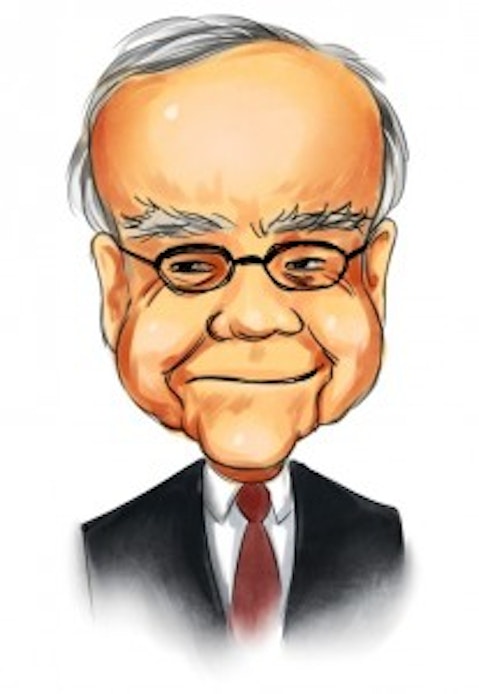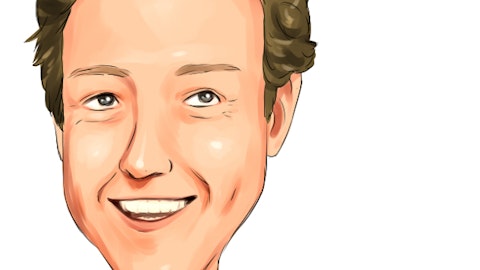
From November 1976 to the end of 2011, Warren Buffett delivered an average annual return of 19% in excess of the Treasury bill rate, as measured by shares of his publicly traded conglomerate, Berkshire Hathaway (BRK.A, BRK.B), versus a 6.1% average excess return for the stock market. In addition, Berkshire’s Sharpe ratio — a measure of return per unit of risk — is higher than all U.S. stocks that have been traded for more than 30 years from 1926 to 2011, as well as all U.S. mutual funds in existence for more than three decades. So how does he do it?
Mary Buffett to be keynote speaker at Omantel forum (TimesOfOman)
Renowned speaker and best-selling author Mary Buffett will be visiting Oman on September 17 to address the corporate customers of Oman Telecommunications Company (Omantel). Buffett, who is also the daughter-in-law of the world’s most successful investor Warren Buffett, will speak about ‘Global Trends and Financial Investment Strategy’ at the Omantel Business Alliance meet. As many as 300 top-level finance professionals, especially chief financial officers, from Oman’s corporate sector are expected to attend the meeting to be held at Shangri-La’s Barr Al Jissa Resort, said Todd Dick, vice-president of Corporate Business Unit of Omantel.
Stocks for the Long Run: Harris vs. the S&P 500 (DailyFinance)
Investing isn’t easy. Even Warren Buffett counsels that most investors should invest in a low-cost index like the S&P 500. That way, “you’ll be buying into a wonderful industry, which in effect is all of American industry,” he says. But there are, of course, companies whose long-term fortunes differ substantially from the index. In this series, we look at how individual stocks have performed against the broad S&P 500. Step on up, Harris Corporation (NYSE:HRS).
10 books to help you invest better (NineMSN)
Warren Buffett’s investing partner, Charlie Munger, once said that he has known “no wise people who didn’t read all the time — none, zero.” In fact he reads so much that his children would laugh, describing him as a “book with a couple of legs sticking out.” …1. One Up On Wall Street by Peter Lynch In this classic, Peter Lynch makes a very persuasive case that the individual investor can do very well by buying great companies for the long term. He even opens the book by saying that “any normal person using the customary three percent of the brain can pick stocks just as well [as], if not better than[,] the average Wall Street analyst.”
Buffetts new bank (NineMSN)
When it comes to Warren Buffett and banks, we’re used to hearing about the unbeatable Wells Fargo. But Buffett has tripled his position in another banking stock — suggesting that there’s more than one mega-bank worth a look. This one has low credit risk, a lot of cash, and plenty of room for international expansion. Get out your chequebooks, bank lovers. …Shortly after the financial crisis, Buffett’s Berkshire Hathaway (NYSE: BRK-A, BRK-B) took positions in a couple of the super banks. His investment in Bank of America was more of a necessity for the beat-up bank, but Buffett also ramped up his position in Wells Fargo (NYSE: WFC), which is now widely considered to be the top bank around.
Sleepy Muni Credit-Default Swap Space May Be Waking Up (BondBuyer)
When Warren Buffett’s Berkshire Hathaway announced recently that it had extracted itself from a big bet insuring a massive amount of municipal debt from default, the move brought attention to a relatively sleepy part of the market. Reflecting a lack of liquidity as much as concern about the potential for defaults, spreads in the $60 billion municipal credit-default swaps market have been wide for some time, market watchers say.
Facebook Share Repurchase Should Make Warren Buffett Proud (Minyanville)
Since it became public at $38 per share on May 18, social networker Facebook Inc (NASDAQ:FB) has lost more than half of its value. Is it a buy at its current level of $19? According to valuation expert and NYU Finance Professor Aswath Damodaran, the answer is “almost.” Back in May, Damodaran valued Facebook at $29, but in late August he reduced his fair value estimate to $23.94. Why the 17.4% valuation haircut? Damodaran now projects slower revenue growth and lower profit margins, and continues to voice concern about Facebook’s “absence of a clear business plan” to monetize its nearly one billion users. I’ve written about Facebook’s inability to come up with an effective way to monetize its mobile users. Nevertheless, Damodaran continues to believe that Facebook has “incredible potential.”
Bochy not ready to demote Sandoval yet (CSNBayarea)
We’ve seen two versions of Bruce Bochy, Giants manager. There is the slow-moving version who stays with veterans, gives players time to work out of slumps and generally makes fewer rash decisions than Warren Buffett. Then there is the ultra-reactionary version who manages the lineup and bullpen like a day trader with an espresso habit.
Roy Exum: Joe Moglia Wins The Chips (Chattanoogan)
You probably missed the fact tiny Coastal Carolina whipped Furman’s football team in a triple overtime on Saturday, squeaking past the Southern Conference giants, 47-45, but there is something fun and wonderful you need to know. Coastal’s first-year coach Joe Moglia has a picture in his office of him playing poker with billionaire investor Warren Buffett and it is aptly inscribed, “To Joe, who always ends up with all the chips.”
Letting go of Big O envy in laid-back Lincoln (Journalstar)
Lincoln has always had Big O envy. And not just because the hilly city to the east can tie its marketing campaign to the bedroom, and we seem to have tied ours to something far less sexy. We envy Omaha for its funky neighborhoods and weekend festivals and hip nightlife. For its abundance of locally owned restaurants and high-end shopping. Its deep pockets and can-do attitude. We’re jealous of a city that has Warren Buffett and Pottery Barn and the College World Series and Whole Foods. And an airport that doesn’t close at suppertime.
Why Buying Treasuries Is Not A Rational Investment (SeekingAlpha)
While there are plenty of definitions of what the purpose of investing may be, for me it is this: the foregoing of consumption today with the belief that the delayed gratification will increase my purchasing power in some future tomorrow. If I lived in 1950, I would find it foolish to put a $10 bill in an envelope to spend 50 years later. Why is that? Because that $10 could go a lot further in 1950 than in 2000. Using Warren Buffett’s hamburger test, you could probably buy 100 hamburgers for $10 in 1950. Today, if we use the McDonald’s Corporation (NYSE:MCD) dollar menu as our baseline, you could get about 10 hamburgers for $10. This was not a good trade-off: an investment that yields 0% in a world of 3-4% inflation will make you substantially poorer over a long period of time.





